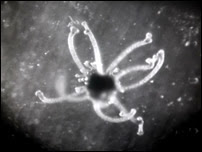A Arnold Friedman le llega una revista de pornografía infantil. Se desata el caos. A partir de una orden de cateo encuentran una buena colección, que llevaría a la cárcel a dos miembros de la familia, Arnold y su hijo Jesse.
La película retrata el desmoronamiento de los Friedman, que sin la gran cantidad de archivo con el que contaban, probablemente no hubiera dado el largometraje.




Igual que en The Thin Blue Line, la película sirvió como un medio para probar las incoherencias del encarcelamiento de ambos, pero al Arnold suicidarse para dejar el dinero de su seguro al hijo (cosa que no funcionó ya que por suicidio no se vale) sólo quedaba Jesse, quien en el 2004 abrió una página. www.freejesse.net y aparecen esta serie de hechos que gracias a la película salieron a la luz.
The vast majority of the computer students interviewed by the police had no recollection of any abuse despite being visited by the police many times. The police had notes of these interviews, but never provided them to the defense as they were required to do under Brady v. Maryland.
Students who eventually provided testimony that they had been abused, had no recollection of such abuse until after they had been subjected to up to five kinds of manipulative and suggestive questioning by the police -- questioning methods now proven to produce false statements from children. For example:
o One of the computer students who became a key witness in the case, admitted that he did not remember any of the abuse he alleged until after he was hypnotized, a technique proven to lead to false memories.
o Police detectives admit to having provided the students with incentives to encourage them to provide testimony, including in one case having pizza parties, and offering to “deputize” cooperative children.
o One detective admits to visiting a student 15 separate times in order to finally procure incriminating testimony despite the child’s consistent statement that he had not been abused. See: David Kuhn Affidavit
o A number of computer students admit to having provided false testimony in order to “end the questioning” and that they actually did not experience the abuse to which they had testified. See: Brian Tilker Affidavit
o One team of detectives, in a tape recorded interview, told one of the computer students who was adamantly insisting that he had not been abused, that he could become a homosexual if he did not admit to the abuse. See: Interrogation

En este caso Jarecki no aparece en el documental, no se le ve, no se interactua con él. Simplemente ha fungido de detective en los tres años que le tomó hacer la película.
In one of the few negative reviews, Los Angeles Times writer Kenneth Turan wrote a critique of both the film and Jarecki stating, "Jarecki's pose of impartiality gets especially troublesome for audiences when it enables him to evade responsibility for dealing with the complexities of his material."
Lo cual es cierto, por una parte el espectador tiene la obligación de hacer su propia resolución, pero nunca sabemos de qué lago está el director (no digo que esté mal).
A mí me intriga un poco la apertura que tuvo la familia hacia la película, porque con la excepción de un hermano, todos participan. Videos privados de David, confesiones fuertes por parte del hermano de Arnold, la madre, e incluso la página en internet es bastante abierta al público. Hay que tomar en cuenta que no es una película que únicamente trate sobre el juicio o el caso, sino de la vida de Arnold, dejando al descubierto una clara pedofilia (sin tomar en cuenta lo de los alumnos de la clase de comutación, él admite haber tocado a 2 hijos de sus amigos) y la complicidad de su, en ese entonces, mujer (porque sabía).
http://www.capturingthefriedmans.com/main.html




No hay comentarios:
Publicar un comentario